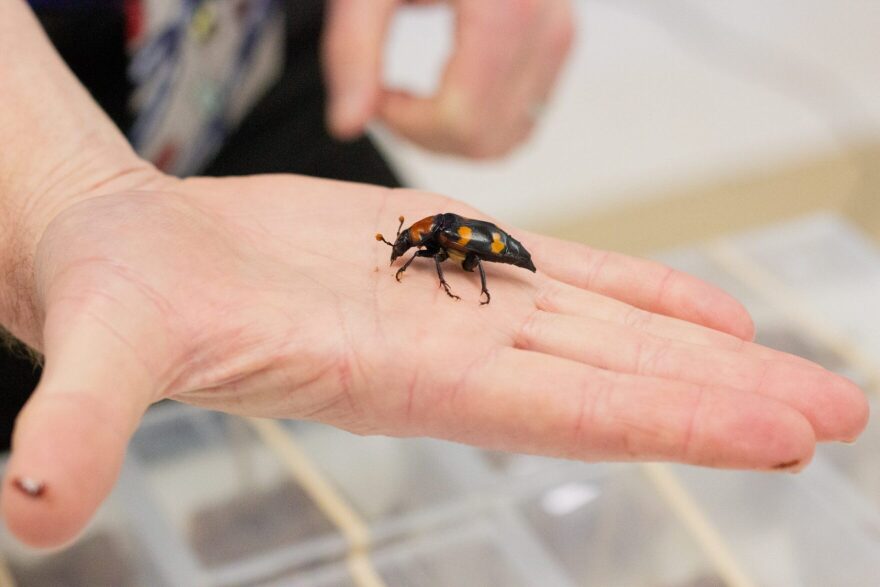Farmers in five Missouri counties are now free to use an herbicide that had been restricted in January.
The initial ban came down from the U.S. Environmental Protection Agency, which restricted use of the Enlist brand of herbicides in counties where the endangered American burying beetle is present.
There was a fear it could harm the insect.
But a coalition of farm groups from several states, led by the Missouri Department of Agriculture, pushed back. The EPA looked at additional data about the runoff levels of the herbicide if applied properly. The agency canceled the restriction last week.
Farm interests believe the change came in the nick of time.
“The decision was made before spring planting. So it wasn’t too late for those producers who were caught with those products in their barns and all ready to go in their planters,” said Christi Miller, spokesperson for the Missouri department.
The five western Missouri counties that had the restriction lifted are Barton, Bates, Cedar, St. Clair and Vernon. The ban was also in place in counties in seven other states, including Nebraska, Kansas and Arkansas.

The EPA determined that if used properly, the herbicides that are typically applied to corn, soybeans and cotton did not pose a threat in most counties. The restriction is still in place in parts of Texas, Arizona, Tennessee, Colorado and Florida.
Miller said that while it worked out well in the end, the ban put a scare in a lot of farmers.
“It was harmful for those counties who had made growing decisions. They made purchases for this season. So when you come in January and make that kind of a decision, that’s kind of in the middle of the game,” Miller said.
Mark Loux, professor of weed management at The Ohio State University, was more direct in his criticism of the initial ban in January.
“Sometimes you’d like the s**t to stop hitting the fan just long enough to get cleaned up, but you can’t get a break,” he wrote of the initial January decision.
Environmentalists and some in the agriculture community are hoping the endangered beetle will be protected despite the change.
Researchers at Oklahoma State University say the insects could hold the key to new medical treatments and meat preservation methods, as well as help replenish nutrients in the soil.
“We, as humans, are intelligent enough to see the value that organisms contribute and understand how we impact them, and therefore we’re ethically responsible for doing the best that we can do,” said Wyatt Hoback, professor of entomology and plant pathology at Oklahoma State.
Follow Jonathan on Twitter: @JonathanAhl
This story was produced in partnership with Harvest Public Media, a collaboration of public media newsrooms in the Midwest including St. Louis Public Radio. It reports on food systems, agriculture and rural issues. Follow Harvest on Twitter: @harvestpm
Copyright 2022 St. Louis Public Radio. To see more, visit St. Louis Public Radio. 9(MDAxODM0MzkwMDEyMTY4NDg0NTBmYjQyZQ004))



